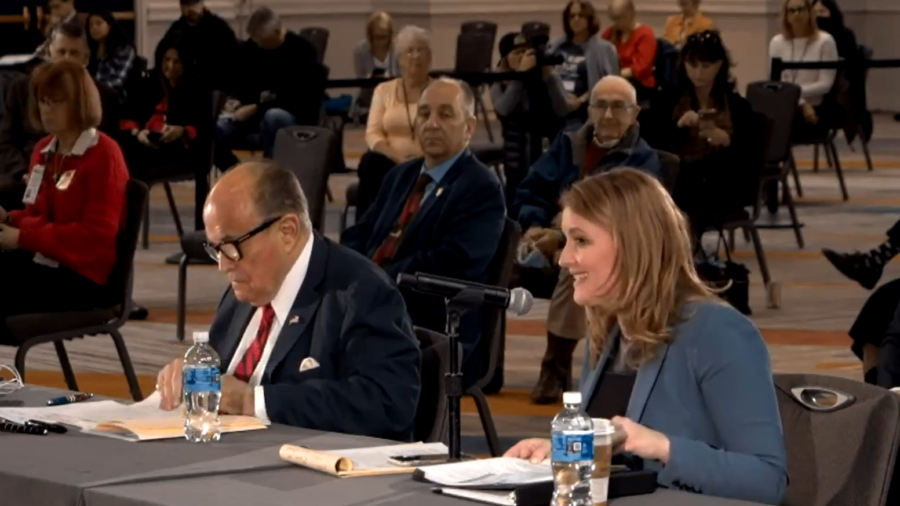President Donald Trump’s legal team argued that the Dec. 8 “safe harbor” deadline has no practical effect in the president’s lawsuits seeking to overturn the results of the election.
Attorneys Rudy Giuliani and Jenna Ellis said the “safe harbor” deadline is “a timeline that generally denotes the last day for states to certify election results.”
But they noted that it’s “not unprecedented for election” challenges to last beyond the Dec. 8 date.
???????????? pic.twitter.com/eVv29qtoeU
— Jenna Ellis (@JennaEllisEsq) December 8, 2020
Citing the late Justice Ruth Bader Ginsburg’s argument in Bush v. Gore during the 2000 presidential election, the lawyers said “the date of ‘ultimate significance is January 6, when Congress counts and certifies the votes of the Electoral College.”
“The only fixed day,” they said, “in the U.S. Constitution is the inauguration of the president on January 20 at noon.”
Ellis, in an interview with Newsmax on Tuesday, said the Dec. 8 “safe harbor” deadline “actually has no practical effect on the litigation.” She added that the Dec. 14 Electoral College vote also “really doesn’t” have an effect, citing the Ginsburg opinion.
“Jan. 6 is the date we’re looking at, so we still have a ways to go in this, Grant,” Ellis added. “And it’s really just the fake news mainstream media that wants to rush this to judgment.”
Some experts have said that the “safe harbor” date is actually consequential.
Rebecca Green, an election law professor at the William & Mary law school in Williamsburg, Virginia, told The Associated Press that federal law stipulates that “if a state has completed its post-election certification by Dec. 8, Congress is required to accept those results.” The “safe harbor” date, six days before the Electoral College meeting, requires every state to have made their respective election results official.
But on Tuesday, the state of Texas filed a lawsuit in the U.S. Supreme Court against Pennsylvania, Georgia, Michigan, and Wisconsin, alleging that the states unconstitutionally changed election laws, treated voters unequally, and triggered significant voting irregularities by relaxing ballot-integrity measures.
“Trust in the integrity of our election processes is sacrosanct and binds our citizenry and the States in this Union together. Georgia, Michigan, Pennsylvania, and Wisconsin destroyed that trust and compromised the security and integrity of the 2020 election,” Texas Attorney General Ken Paxton said in a statement.
Only one lawsuit related to the Nov. 3 election has been brought to the Supreme Court. Supreme Court Justice Samuel Alito ordered briefs for a lawsuit filed by Rep. Mike Kelly (R-Pa.) in Pennsylvania, suggesting a temporary restraining order could be in the works.
Ivan Pentchoukov contributed to this report.
From The Epoch Times


